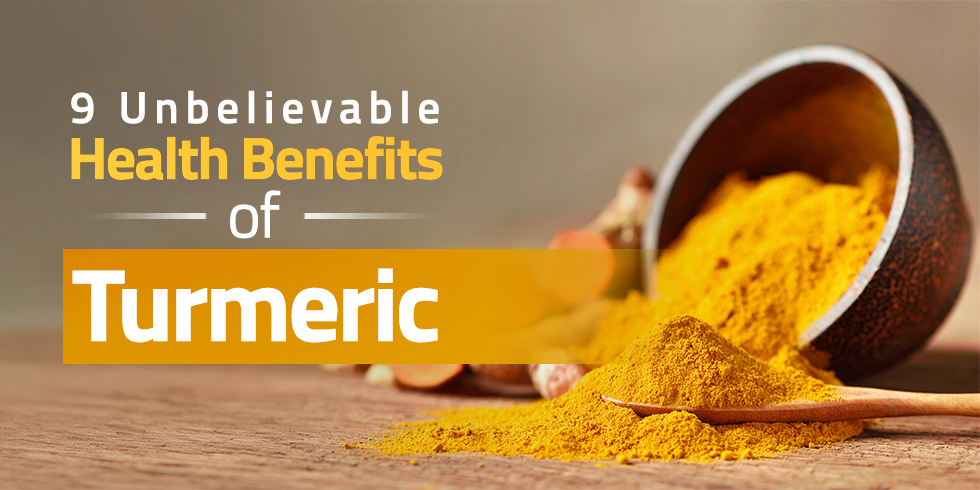Have you ever wondered if there’s a natural remedy that can rival the effectiveness of conventional medicines? What if we told you that a simple spice found in most kitchens holds the key to incredible health benefits? Turmeric, often hailed as a golden superfood, is making waves in the health community for its remarkable properties.
A study published by the National Institute of Health (NIH) found that turmeric was as effective as ibuprofen in reducing knee osteoarthritis pain and inflammation. This is just the tip of the iceberg when it comes to the wonders of turmeric. Discover nine unbelievable ayurvedic health benefits of turmeric that could revolutionise your health.
What Makes Turmeric Special?
The magic of turmeric lies in its bioactive compounds, with curcumin being the star. Curcumin is a natural antioxidant that gives turmeric its distinctive colour and a host of therapeutic properties. However, curcumin is not alone; turmeric also contains more than 300 other antioxidants, making it a potent remedy against many ailments.
9 Research-Supported Health Benefits of Turmeric
1. Anti-Inflammatory Properties:
Chronic inflammation is a root cause of many serious diseases, including heart disease, cancer, and Alzheimer’s. Curcumin, the active ingredient in turmeric, has been shown to match the effectiveness of some anti-inflammatory drugs without side effects. It works at the molecular level by blocking an enzyme that causes inflammation and inhibiting several other molecules that play a role in inflammation. This makes turmeric a natural and safe way to combat inflammation, providing relief from chronic conditions like arthritis and lowering the risk of developing other inflammatory diseases.
2. Boosts Antioxidant Capacity
Turmeric not only contains antioxidants; it also enhances the body’s own antioxidant enzymes. Oxidative damage involves free radicals, highly reactive molecules with unpaired electrons. Antioxidants like curcumin neutralise free radicals, thus preventing them from damaging healthy cells. This process is fundamental in protecting the body from ageing and many diseases that stem from oxidative stress, including neurodegenerative diseases like Alzheimer’s and certain types of cancer.
3. Improves Brain Function
Curcumin boosts levels of the brain-derived neurotrophic factor (BDNF), a type of growth hormone that functions in your brain. Low levels of BDNF are linked to brain diseases like Alzheimer’s and depression. By increasing BDNF, curcumin can help delay or reverse brain diseases and age-related decreases in brain function. Additionally, it may improve memory and make you sharper, contributing to better overall cognitive function.
4. Lowers Risk of Heart Disease
Curcumin has multiple benefits for the heart. It improves the function of the endothelium, which is the lining of your blood vessels. Endothelial dysfunction is a major driver of heart disease, as it’s involved in regulating blood pressure, blood clotting, and various other factors. Curcumin also reduces inflammation and oxidation, which are also important in heart disease. This multifaceted approach makes turmeric a valuable tool in maintaining heart health and preventing heart disease.
5. Can Reduce Chances of Cancer
Curcumin has been studied as a beneficial herb in cancer treatment. It can affect cancer growth, development, and spread at the molecular level. Studies have shown that it can reduce angiogenesis (growth of new blood vessels in tumors), metastasis (spread of cancer), and even contribute to the death of cancerous cells. With its ability to reduce inflammation and intercept pathways involved in cancer development, curcumin holds promise as a complementary therapy in cancer treatments.
6. Alleviates Arthritis Symptoms
The anti-inflammatory properties of turmeric make it an effective natural treatment for arthritis. Several studies have shown that turmeric can help reduce symptoms of arthritis, sometimes performing on par with pharmaceutical drugs but without the side effects. Curcumin, with its strong anti-inflammatory effects, is likely the main reason for these benefits, helping reduce joint inflammation and pain in individuals suffering from various forms of arthritis.
7. Benefits Against Depression
Curcumin has shown promise in treating symptoms of depression. In a controlled trial, it was found to be as effective as an antidepressant over a six-week period. The theory is that curcumin boosts the brain neurotransmitters serotonin and dopamine, which play a role in mood regulation. This suggests that turmeric could be used as a supportive treatment alongside traditional therapy for those experiencing depression.
8. Delays Aging and Fights Age-Related Chronic Diseases
Given that oxidation and inflammation are believed to play a role in ageing, curcumin has significant potential as an anti-ageing supplement. By combating cellular damage, inflammation, and potentially even extending life span, as some studies suggest, turmeric becomes a valuable addition to any longevity diet. Its ability to protect from neurodegenerative diseases and arthritis further underscores its anti-ageing benefits.
9. Helps Manage Diabetes
Turmeric can be a helpful addition to the diet of those managing diabetes. It has been shown to improve insulin sensitivity, thereby reducing blood sugar levels and improving metabolic health. Curcumin’s role in diabetes management is also linked to its anti-inflammatory and antioxidant properties, which are crucial in reducing common complications of diabetes, such as high blood pressure and heart disease.
These benefits highlight why turmeric is not just a spice for flavour but a potent medicinal herb that offers a wide range of health advantages. Incorporating turmeric into your diet can provide you with these benefits, helping you maintain and improve your health naturally.
How to Incorporate Turmeric into Your Diet
Adding turmeric to your diet is simple. Here are a few ideas:
- Stir a dash of turmeric into your morning smoothie.
- Add turmeric to your soups or stews for a subtle flavour and a burst of colour.
- Brew a warm cup of turmeric tea or golden milk (turmeric latte).
- Use it to season meats and vegetables for an extra flavour kick.
Potential Side Effects and Precautions
While turmeric is generally safe, consuming high doses or taking turmeric supplements could cause gastrointestinal problems, nausea, dizziness, or diarrhoea. It’s important to consult with a healthcare provider before starting any new supplement regimen, especially if you have existing health conditions or are taking other medications.
Conclusion
The ayurvedic health benefits of turmeric are indeed impressive. From reducing inflammation and improving brain function to fighting cancer and aiding in depression, turmeric is a multifaceted spice that holds great promise in natural health.
By incorporating just a little bit of this golden spice into your daily diet, you can avail yourself of its myriad health benefits. However, remember to enjoy turmeric responsibly and be mindful of its potent effects and possible interactions with medications. Turmeric is not just a spice; it’s a testament to nature’s ability to nurture and heal.





